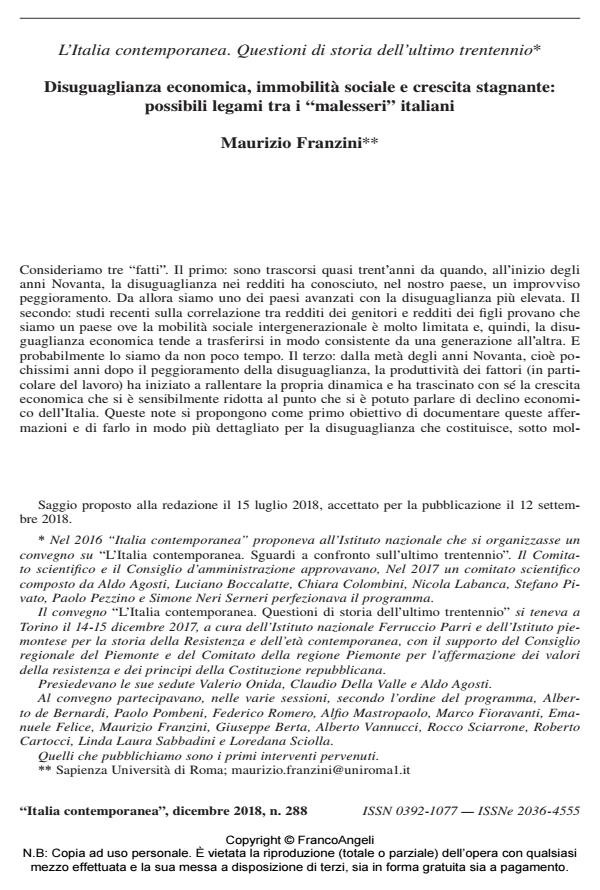Economic inequality, social immobility and sluggish growth: advancing some interpretations about the links between Italy’s "malaises"
Journal title ITALIA CONTEMPORANEA
Author/s Maurizio Franzini
Publishing Year 2019 Issue 2018/288
Language Italian Pages 17 P. 115-131 File size 131 KB
DOI 10.3280/IC2018-288005
DOI is like a bar code for intellectual property: to have more infomation
click here
Below, you can see the article first page
If you want to buy this article in PDF format, you can do it, following the instructions to buy download credits

FrancoAngeli is member of Publishers International Linking Association, Inc (PILA), a not-for-profit association which run the CrossRef service enabling links to and from online scholarly content.
Let us consider three "facts". First: almost thirty years have passed since, in the early 1990s, income inequality in Italy experienced a sudden worsening. Since then, Italy is one of the advanced countries with the highest inequality. Second: recent studies about the correlation between parents’ incomes and children’s income show that Italy is a country in which intergenerational social mobility is very limited and, therefore, economic inequality tends to move consistently from one generation to the next. And this has taken place for a long time. Third: since the mid-1990s, i.e. a few years after the worsening of inequality, industrial productivity (in particular of labor) has started slowing down and has led to a reduction of economic growth, to a point that we could talk about an economic decline. The first goal of this article is to unpack these statements, by paying particular attention to inequality which, in many respects, constitutes a more complex phenomenon than the other two. The second goal is to illustrate some possible connections between these three "facts", which are normally not adequately considered but can help us understand the roots of the problems in which Italy has experienced for years and identify some possible solutions.
Keywords: Inequality, Social mobility, Economic decline
Maurizio Franzini, Disuguaglianza economica, immobilità sociale e crescita stagnante: possibili legami tra i "malesseri" italiani in "ITALIA CONTEMPORANEA" 288/2018, pp 115-131, DOI: 10.3280/IC2018-288005